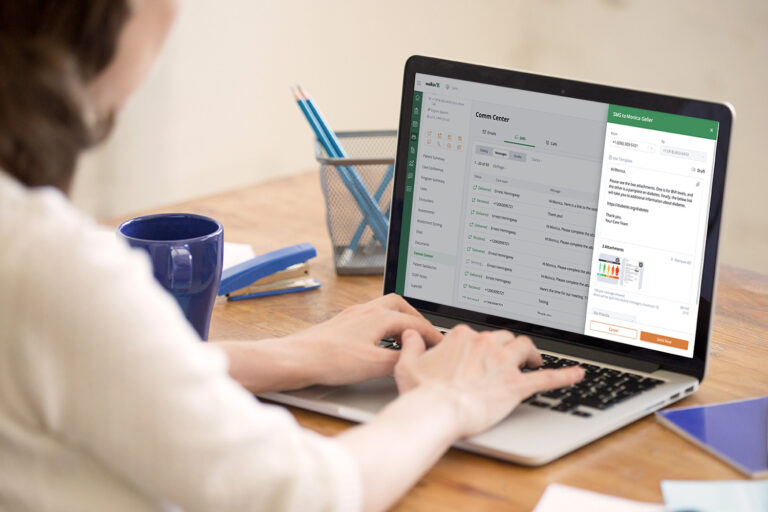Just a year ago this month, we began a collective journey, retreating to our homes, becoming more familiar with our four walls than we ever thought possible, creating a new normal for ourselves and our families almost overnight.
Today we look back and that classic saying seems on target: what a difference a year makes.
We have not one vaccine but several that work really well, a true miracle of science. We have local, state and federal leadership working diligently to get shots in arms. And as of this writing, more than 81M people have been vaccinated. If we look on this past year with some measure of grief about opportunities lost and difficulties weathered, we can also look to this year with hope for the future and joy at reuniting face to face with one another.
I know we each learned unique lessons from the relentless teacher that was 2020. Here were the things I took away — the things I’ll try to keep close as we move slowly but surely into a post-pandemic world.
Resilience
On the work front, Welkin had an incredibly productive year, with not a wasted minute in the day, all with the intent of launching a new version of our platform. We were driven. Our customers are in healthcare, on the literal frontlines of managing this public health emergency. For us, it felt like all hands on deck, with not a second to lose.
Concurrently, we exponentially stepped up our engagement with customers to make sure they had what they needed. That frequently meant helping those who were now fully — suddenly — remote, transition to care management protocols that better supported telehealth. One customer had to shift their care programs three separate times in response to external conditions. Each time we adjusted their configuration to make a care team approach to telehealth feel natural and effective, making it as easy on every care team member as possible.
From reimagining our platform to ensuring the version we had supported customers in the moment, it was a pace that felt, at times, exhausting. We missed the opportunities to collaborate face to face, the chance to wander down to the company kitchen and take a break. But we also channeled our resilience and focus to help — and that was gratifying.
Rest + recharging
Our pace was often frenetic but one of the most important things I continued to emphasize was balance and perspective. This was important to me pre-pandemic but it actually became non-negotiable. Working crazy hours is of no use to anyone if you can’t think. I had many conversations with people, pushing them to take a walk, do something that enriches them, or just simply take a break and step away from the computer. You need these breaks to get perspective on work items you’re trying to tackle, and let your mind relax enough to problem solve.
At the beginning of the pandemic, we created a buddy system to check in on each other. A few people I checked in on hadn’t left the house in four weeks. We worked together to figure out how to do it in a safe way so they could get some fresh air (and fresh perspective). Our Chief Medical Officer leads one-hour Zoom spin classes three times a week.
Even our kids helped us. Our VP of Engineering’s six-year-old daughter came in to a late Zoom meeting, bike helmet in hand, to remind him he was late for their evening ride. We insisted on stopping the meeting. If he’d been in the office, he would have missed that opportunity to be with her. These are cherished moments not to be taken for granted.
As leaders, we should treat our teams like the adults they are. I’ve always been a believer in encouraging people to own their time. You want to go to the gym at 2 p.m. in the afternoon? Go. You manage your calendar. Empower your team around a common set of goals and objectives — and it won’t matter if you’re on the moon or in the Marianas Trench: the work will get done.
Recalibration
The outside noise — the work and social commitments — went quiet all at once a year ago. It was incredibly jarring. What do you do if you don’t have happy hours, conferences, late dinners with friends, kids’ sporting events, etc., on your plate? One thing’s for sure: I definitely wasn’t looking to fill the void with more draining Zoom time.
Like most people, I figured out a new normal. I get outdoors four times a day and take long walks early in the morning and right after work. I’ve gotten back on my Peloton and taking classes frequently has kept me happier. I’ve learned to cook more new things, including a dairy-free (but completely killer) chocolate ice cream. I’ve gotten to know all my neighbors for the first time ever and reconnected with university classmates I’ve known for three decades.
For me, this time has been about calibration. It’s a period where I’ve had the space to actually think about what balance means to me. And it’s given me much more resolve to be selective about where I will invest my time in the future. After all, if the pandemic’s given us nothing else, it’s the reinforcement that time and meaningful human connections are really the most precious of all.
The one thing that stands out for me is asking myself if I want to go back to things as they were before, the proverbial “rat race.” The answer is a resounding no. Time will tell what my new normal looks like, but it won’t be the same as before. But I can see the light at the end of the tunnel and look forward to it.
What learnings are you carrying with you into your post-pandemic life?


